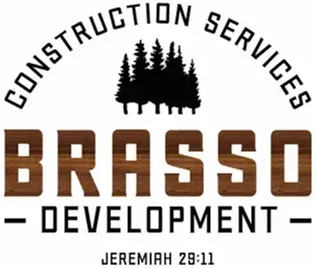Longview Resident's Guide to Land Development
Land development in Longview requires careful planning, proper permits, and expertise in East Texas soil conditions and local regulations. Successful development projects balance environmental considerations with practical construction needs, ensuring your property is properly prepared for building while meeting all city and county requirements.
What Does the Land Development Process Involve?
The land development process begins with site assessment and soil testing to determine ground conditions, drainage patterns, and any environmental considerations. This information guides decisions about grading, utilities placement, and foundation requirements for future construction.
Next comes permit acquisition and regulatory approval. Longview projects must comply with city zoning requirements and building codes. Your development team should handle applications for necessary permits including grading permits, utility connections, and environmental clearances.
The physical development work includes clearing and grading, utility installation, and road or driveway construction. Professional developers coordinate these phases to ensure proper drainage, stable building sites, and code-compliant infrastructure. Land development services in Longview require expertise in local soil conditions and regulatory requirements.
How Do You Choose the Right Development Team?
Look for land developers with proven experience in East Texas projects similar to your scope and size. They should demonstrate knowledge of local soil conditions, drainage requirements, and permit processes specific to Longview and Gregg County.
Review their portfolio of completed developments and ask for references from recent clients. Quality developers can show you before and after photos, explain challenges they encountered, and describe how they solved problems during the development process.
Verify their licensing and insurance coverage. Land development involves heavy equipment and significant liability exposures. Your developer should carry appropriate insurance and maintain all required licenses for the work they'll perform on your property.
What Permits and Approvals Do You Need?
Longview land development typically requires multiple permits depending on your project scope. Grading permits are needed for significant earth moving or site preparation work. If you're connecting to city water and sewer systems, utility connection permits are required.
Environmental considerations may trigger additional permit requirements. Projects near waterways, wetlands, or environmentally sensitive areas often require special approvals and impact studies. Your development team should identify these requirements early in the planning process.
Some projects may also need subdivision approval if you're dividing property into multiple building lots. This process involves additional review steps and public hearings. Commercial construction services in Longview may require additional permits and approvals beyond residential projects.
Longview's Geography and Climate Impact on Land Development
Longview's location in East Texas creates specific challenges and opportunities for land development. The area's clay-heavy soil requires careful attention to drainage and foundation preparation. Proper grading and drainage systems are essential to prevent water accumulation and soil movement.
The region's substantial rainfall means development projects must account for stormwater management. This includes proper slope grading, retention areas, and drainage infrastructure to handle seasonal weather patterns and occasional heavy rainfall events.
East Texas forests and vegetation also impact development planning. Tree preservation requirements may apply in certain areas, and clearing work must be planned to minimize erosion and environmental impact. Experienced local developers understand these requirements and plan accordingly.
For over a decade, Brasso Development & Construction has helped Longview property owners successfully develop their land for residential and commercial projects. When you're ready to explore your property's development potential, call us at (903) 780-6999 to discuss your vision and learn how we can help make it reality.
